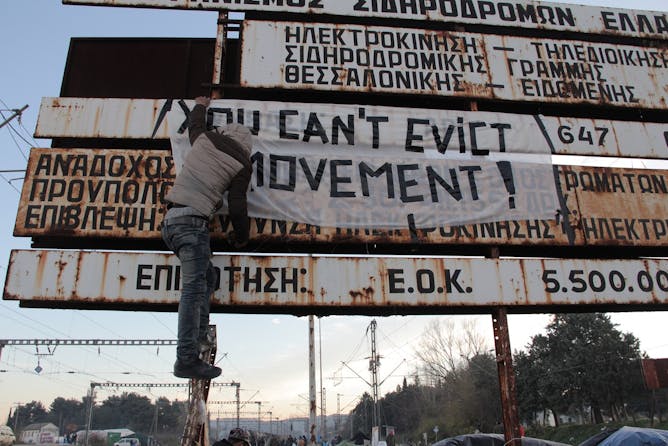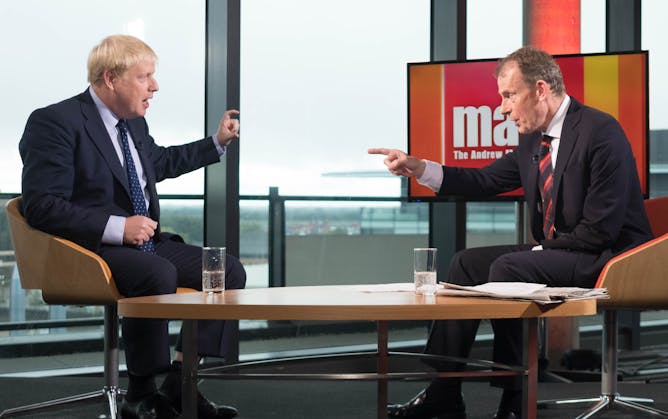|
|
|
Editor's note
|
|
Its activists referred to themselves as agents, conductors and station masters and its fugitives as passengers. The “underground railroad”, which helped enslaved people escape from the southern slave states of the US in the 19th century, has gained renewed attention recently. Today, in both Europe and North America, comparisons to the railroad’s ethos have been made with the solidarity of activists helping those making precarious migrations across borders.
In 19th-century America, those opposed to the escape of “fugitives” wrongly attributed slave runaways to the “enticement” of northerners, writes Maurice Stierl. And in Europe today, those activists supporting people on the move are also blamed for causing such “illegal” movements. NGOs working to save lives in the Mediterranean have been criticised by politicians as a “pull-factor” for more migrants.
But Stierl cautions that what these historical and current debates have in common is an attempt to deprive those on the move of any agency in their journeys. Today’s migrants are also seeking their own freedom.
Meanwhile, in the UK, a week after Boris Johnson won an 80-seat majority, we look at what this means for the future of the BBC. And if you’re gearing up for some political arguments round the Christmas dinner table, here’s what happens in the human brain when we disagree.
|
Gemma Ware
Global Affairs Editor
|

|
|
Top stories
|

Networks of support in solidarity of migrants on the move have grown across Europe and North America.
L.M. for Moving Europe, 2015
Maurice Stierl, University of Warwick
Both in 19th-century America and today, the initiative and choices of those making the journey are often ignored.
|

Can the BBC continue to hold leaders to account?
Stefan Rousseau/PA Wire/PA Images
Kerry Traynor, University of Liverpool
There were some ominous sounds coming out of the election campaign about what the Conservatives might have planned for the UK's public broadcaster.
|

Ollyy/Shutterstock
Andreas Kappes, City, University of London; Tali Sharot, UCL
New research could help you win an argument.
|
Politics + Society
|
-
David Deacon, Loughborough University; David Smith, University of Leicester; Dominic Wring, Loughborough University
It wasn't the 'Sun wot won it', but the partisanship of the UK press made the Conservatives' task a great deal easier.
-
Tom Quinn, University of Essex
Centrists are at loggerheads with the left. They're both right about what went wrong and that's a problem.
-
David Hastings Dunn, University of Birmingham
What Boris Johnson's victory means for US-UK relations.
-
Nick McKerrell, Glasgow Caledonian University
The prime minister may be assured that this issue will not be going away any time soon as Nicola Sturgeon makes a democratic case for transferring powers rather than a legal one.
-
Anil Varughese, Carleton University
India's updated citizenship act violates its constitution by allowing discrimination on religious grounds.
-
Lynda Boothroyd, Durham University
The more people watch TV the more likely it is that they prefer a slimmer female body size.
|
|
Arts + Culture
|
-
Stefanie Johnstone, University of Technology Sydney
From Aeschylus to The Matrix, the trilogy has a long history. But perhaps no film series has used it as successfully as Star Wars.
-
Anne Lawrence-Mathers, University of Reading
The pagans paved the way for our modern festivities.
-
Benjamin Dix, SOAS, University of London
A UN aid worker turned his experiences in war-torn Sri Lanka into a graphic novel.
|
|
Science + Technology
|
-
Rory Cooper, University of Sheffield
Shark skin is composed of millions of tiny scales, which have a similar chemical composition to human teeth.
-
Stephan Lewandowsky, University of Bristol
'They might be a liar but at least they're honest.'
|
|
Environment + Energy
|
-
Mark Zeitoun, University of East Anglia; Muna Dajani, London School of Economics and Political Science
The holy river is used and abused so much that it barely reaches the Dead Sea these days.
|
|
Business + Economy
|
-
Drew Woodhouse, Sheffield Hallam University
The days of using interest rates to keep the wheels on are at an end.
|
|
| |
Featured events
|

|
Ron Cooke Hub, Campus East, , York, York, YO10 5GE, United Kingdom of Great Britain and Northern Ireland — University of York
|
|
|
|
| |
| |
| |
| |
| |
|
|
|
|
|
|
|